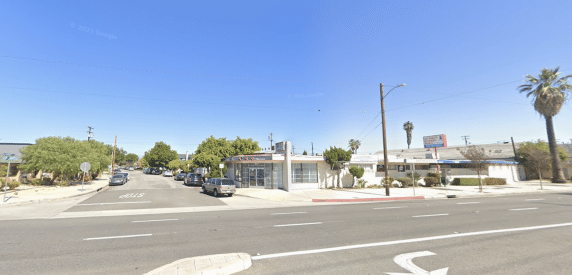
When you or someone you know gets arrested, the first thought is often about getting out of jail fast. Bail bonds offer a way to do just that, but the process and options could be more transparent. This guide answers the most common questions about bail bonds to help you understand how they work. Whether you are new to the bail process or looking for specific details, we've got you covered.
At CBB Bail Bonds, we are here to help you. Learn more about the bail bonding process below. Then, contact us to speak with our team.
What Is a Bail Bond and How Does It Work?
So, how do common bail bonds work? A bail bond is an agreement between a defendant and a bail bondsman. The bail bondsman posts bail for the defendant. This means the defendant can be released from jail. In exchange, the defendant pays the bail bond company a fee, usually a percentage of the bail amount. This system ensures the defendant can return home while waiting for their court date.
The bail bond process involves a legal agreement where the defendant agrees to meet all court appearances. The bail bond agent may be responsible for the entire amount if the defendant does not appear. This risk is why bail bond agents require collateral or a co-signer before posting bail. The aim is to ensure defendants have a financial incentive to return to court.
How Much Does a Bail Bond Cost?
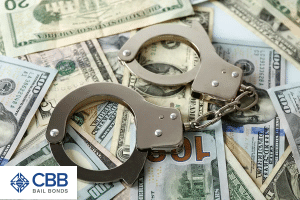
The cost of a bail bond typically ranges from 10% to 15% of the bail amount set by the court. This fee is non-refundable and compensates the bail bondsman for their service and the risk they take. The exact percentage can vary based on state laws and the case's specifics.
Can I Get a Bail Bond With Bad Credit?
Yes, you can get a bail bond with bad credit. Bail bondsmen often consider other factors, such as employment status, community ties, and the nature of the charge. Some bail bonds companies require additional collateral or a co-signer to offset the risk.
What Is the Difference Between a Bail Bond and a Cash Bond?
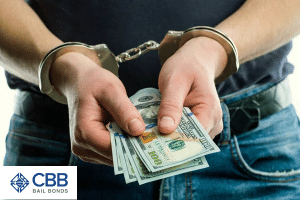
Bail and cash bonds serve the same purpose but work differently. With a cash bond, the entire bail amount must be paid to the court upfront in cash. This money is held until the defendant's court hearings are complete. The cash is returned minus any court fees if the defendant attends all court dates.
In contrast, a bail bond involves paying a bail bondsman a non-refundable fee to post bail for you. This option is more accessible for those who cannot afford to pay the full bail amount in cash. The bail bondsman assumes the risk of the bail amount in exchange for the fee.
How Long Does the Bail Bond Process Take?
This process can vary, typically from a few hours to a day. The timing depends on the jail's processing times and the specifics of the case. After the bail bondsmen post bail, the defendant is usually released within a few hours, though it can take longer during busy periods or for certain jails.
Once the bail bond company has all the necessary information and collateral, they can quickly secure the defendant's release. The efficiency of the process also depends on the cooperation between the defendant, the co-signer, and the bail bond company.
What If the Defendant Misses a Court Date?
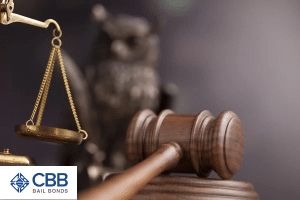
If the defendant misses a court date, the court may issue an arrest warrant, and the bail bond is at risk of forfeiture. The bail bondsman will likely attempt to find the defendant and bring them to court to avoid losing the bail money. In some cases, the court may allow the defendant to reschedule their court appearance if they have a valid reason for missing it.
The bail bondsman is financially interested in ensuring the defendant appears in court. If the defendant repeatedly fails to attend court hearings, the bail bondsman may seek to recover the bond amount through collateral or legal action against the defendant or co-signer.
Can Bail Bonds Be Paid in Installments?
Many bail bond companies offer payment plans to make it easier for defendants and their families to cover bail bond fees. These plans typically require a down payment followed by regular installment payments. The availability and terms of payment plans can vary, so it's important to discuss this option with the bail bond company upfront.
What Are the Responsibilities of a Co-Signer?
A co-signer on a bail bond takes on the financial responsibility if the defendant fails to meet their court obligations. This includes ensuring the defendant appears at all court dates and adhering to any bond conditions set by the bail bondsman. If the defendant misses a court appearance, the co-signer may be responsible for the entire bail amount or any fees incurred in locating and returning the defendant to court.
Co-signers play a crucial role in the bail bond process, guaranteeing that the defendant will follow through with their legal responsibilities. Before becoming a co-signer, fully understanding the financial risks and obligations involved is essential.
Are Bail Bond Fees Refundable?
Bail bond fees are not refundable. The fee, typically 10% to 15% of the total bail amount, is the cost of the bail bond service and is kept by the bail bondsman regardless of the case outcome. This fee compensates the bail bondsman for the risk they take by posting the bail for the defendant.
What Information Do I Need to Provide to Get a Bail Bond?

To secure a bail bond, you provide the bail bondsman with detailed information about the defendant, including their full name, date of birth, the jail where they are held, their booking number, and the bail amount. Additional information, such as employment details, residential address, and the nature of the charges, may also be required to assess the risk and determine the conditions of the bail bond.
How Do Federal Bail Bonds Differ From State Bail Bonds?
Federal bail bonds are used for defendants charged with federal crimes and have different requirements and procedures than state bail bonds. The process for federal bail bonds is generally more stringent, with higher bail amounts and stricter conditions due to the severity of federal offenses.
Federal bail bonds require a licensed bail bond agent to handle federal cases. The fees for federal bail bonds can also be higher, reflecting the increased risk and complexity involved in federal cases.
Can I Secure a Bail Bond for Any Type of Charge?
While bail bonds are available for most charges, there are exceptions. Some serious charges, especially those involving violent crimes or significant flight risk, may result in bail being denied altogether. In such cases, the defendant must remain in custody until their court hearings are complete.
It's essential to consult with a bail bond agent to understand whether a bail bond is an option for your situation. Bail bond agents have experience with various cases and can offer guidance on the best course of action.
What Is Collateral, and When Is It Required?
Collateral is something of value, such as property or a vehicle, that is offered to secure a bail bond. Collateral is required when the bail amount is high, or the defendant is considered a flight risk. It provides an additional guarantee that the defendant will meet their court obligations.
The collateral is returned if the defendant fulfills all court appearances and conditions. However, the bail bondsman may seize the collateral to cover the forfeited bail amount if the defendant does not go to court.
How Can I Find a Reliable Bail Bonds Service?
Finding a reliable bail bonds service involves researching local bail bondsmen, checking reviews, and asking for referrals from attorneys or others who have used surety bond services. Look for a bail bond company with a strong reputation, experience, and a transparent fee structure. Choosing a bail bondsman who is licensed and in good standing with the state's Department of Insurance is also essential.
What Are the Consequences of Not Paying Back a Bail Bond?
If you fail to pay back a bail or surety bond according to the agreed terms, the bail bonds company may take legal action to recover the owed amount. This could include suing for the debt, seizing collateral, or employing collection agencies. Non-payment can also negatively affect your credit score and result in financial penalties.
Contact CBB Bail Bonds for Help Securing Your Release Post-Arrest
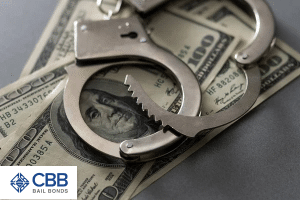
If you or a loved one needs help securing a release from jail, CBB Bail Bonds is here to help. Our experienced bail bond agents understand the stress and urgency of the situation and are committed to guiding you through the bail bonds process efficiently and with compassion. Contact us today to learn how we can help you or a family member secure a release from jail.






